While more research is needed to confirm the efficacy of Delta 9 THC in treating multiple sclerosis, many MS patients report significant improvements from consuming THC at low doses.
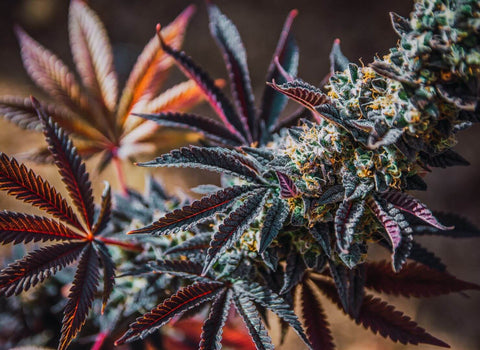
Low doses of Delta 9 are known to reduce inflammation and relieve pain. Delta 9 microdosing also shows potential to improve sleep, lower anxiety, and promote neurogenesis.
Given that MS involves progressive worsening across these arenas, THC microdosing may be a safe and benign alternative for mitigating the symptoms of MS—and potentially slowing the progression of multiple sclerosis itself.
Let’s look at the latest science behind microdosing and MS.
Introduction to Multiple Sclerosis
Multiple sclerosis (MS) is an autoimmune disease that attacks the central nervous system (brain and spinal cord). It is characterized by chronic pain and inflammation, neuronal loss, and demyelination.
Similarly to other autoimmune diseases, multiple sclerosis involves disruption of the immune system, making it attack healthy parts of the body. In this case, the immune system mistakenly attacks the central nervous system, specifically the myelin sheath.
The myelin sheath is a layer that surrounds and protects our nerves. It is responsible for sending and receiving impulses to and from the brain. When this layer is damaged, the messages traveling along the nerves become disrupted.
Symptoms of the disease can vary from person to person and can include:
- Problems with vision
- Problems with arm or leg movement
- Difficulty walking
- Bladder dysfunction
- Fatigue
- Numbness or tingling in different body parts
- Lack of balance and coordination
- Stiffness and muscle spasms
- Problems with thinking or learning
MS is a lifelong condition and causes serious disability as it advances. The life expectancy for people with MS is lower than average, while their quality of life can be significantly reduced.
Currently, there is no cure for multiple sclerosis. Standard treatments focus on controlling the condition and alleviating symptoms, rather than curing it. However, very few treatments are successful at slowing the progress of MS without relapses.
MS and Inflammation
As a chronic inflammatory disease, MS targets the myelin sheath, destroys the nerves, and impairs gray and white matter—all of which can lead to severe neurological problems. According to some studies on MS, researchers are still unclear about why this inflammatory demyelination occurs.
A 2020 review article speculates that inflammation might be the main risk factor for developing multiple sclerosis. Some experts blame a combination of genetic and environmental factors. The Multiple Sclerosis Society maintains that some viral and bacterial infections could potentially cause MS. Epstein-Barr virus (EBV), the virus that causes mononucleosis, is thought to be one MS culprit.
Covid-19 and MS
Popular conspiracy theories implicate COVID-19 vaccines in multiple sclerosis relapses. While some research does show a correlation between COVID-19 vaccination and MS relapse, such studies are based on very small sample sizes and are inconclusive.
It’s important to remember that correlation doesn't equal causation. At the same time, each individual is responsible to make their own vaccination decisions in collaboration with their healthcare professional.
Can Cannabis Treat MS?
Recent clinical studies indicate that THC can help protect nerve cells from damage and is able to reduce pain and inflammation. This is important in treating multiple sclerosis, as the inflammatory disease progressively destroys neurons.
A systematic review of medical cannabis issued by the American Academy of Neurology writes that people with MS experience relief of muscle stiffness (spasticity) and pain after consuming cannabis-based products. A different review by America’s National Academies of Sciences, Engineering, and Medicine (NASEM) confirmed these findings.
Low doses of Delta 9 THC—and other cannabinoids like cannabidiol (CBD)—seem to aid symptoms of MS and prevent the disease from advancing.
If you’re new to microdosing, or thinking about introducing a microdosing regime to your everyday life, give our Delta 9 THC gummies a try. These vegan edibles contain optimal microdoses of Delta 9, as well as CBD and other minor—but equally beneficial—cannabis extracts.
Effects of Low-Dose Cannabis
Low-dose THC has many potential benefits that can help manage symptoms of:
- Chronic pain
- Stress and anxiety
- Depression (microdosing THC can effectively fight off depression and alleviate many depressive symptoms)
- Insomnia and other sleep disorders (check out our article on how THC can promote sleep)
- Dementia, Alzheimer’s, and other memory-affecting illnesses
- Posttraumatic stress disorder (PTSD)
- Attention deficit hyperactivity disorder (ADHD)
- Irritable bowel syndrome
Low-doses of medical cannabis can also effectively alleviate chemotherapy-induced nausea and vomiting, relax muscles and nerves, and provide relief of muscle spasms.
German researchers claim that the health effects of cannabis are significant in improving the overall quality of life in geriatric and palliative patients. They maintain that the effects of cannabis have more benefits than risk.
More evidence suggests that small amounts of THC are great for treating anxiety disorders. Research conducted at University of Washington shows that at low doses, THC appears to decrease anxiety. In contrast, higher amounts have the opposite effect, making anxiety symptoms worse.
For people with MS, chronic pain and inflammation diminish quality of life. Our THC gummies are a good place to start if you’re seeking to improve your overall health. They are packed with quality ingredients and hemp-derived Delta 8 and Delta 9 THC.
Read more about the benefits of microdosing THC and how low doses can be used for a variety of medical purposes without psychoactive effects.
The Endocannabinoid System
Delta-9-tetrahydrocannabinol (Delta 9 THC) is the main psychoactive compound found in cannabis plants. Its psychoactive properties are a result of Delta 9’s interaction with the endocannabinoid system.
The endocannabinoid system (ECS) is a network of receptors and signals that regulate various physiological processes in our body—hormones, immune function, memory, and pain perception, among others. Our body produces neurotransmitters (chemical signals) called endocannabinoids (cannabinoids produced by our own body) that interact with the receptors in the endocannabinoid system. Phytocannabinoids (cannabinoids from plants, namely cannabis) mimic the effects of our body’s own endocannabinoids; they dock with our cannabinoid receptors and modulate our ECS.
Two main cannabinoid receptors are CB1 and CB2. CB1 receptors can be found in several brain regions, while CB2 receptors are more common in immune cells. THC binds to both types and causes changes in important physiological processes.
Low doses of medical cannabis can calm pain signals, induce relaxation, stimulate appetite, regulate sleep, and provide mild sensations of euphoria. At low doses, Delta 9 enhances the endocannabinoid system, especially when combined with other cannabinoids.
The Entourage Effect
When THC and CBD are taken together, CBD regulates how THC interacts with cannabinoid receptors. It increases the efficacy and safety of THC by softening its impact and dampening unwanted effects (increased heart rate, anxiety, and sedation).
This is called the entourage effect, a theory in which beneficial effects of one cannabinoid become more pronounced in synergy with other cannabinoids. Essentially, the entourage effect proposes that therapeutic properties of THC are enhanced when THC and CBD are taken together.
There are many ways you can achieve synergy. One terrific way is with our full spectrum CBD gummies. These yummy vegan edibles contain THC, CBD, and other cannabis extracts that combine their properties to bring relaxation, improve sleep, and elevate mood.
In case you’re looking for quality cannabis products without THC, we recommend our Broad Spectrum Gummies. The main difference between full spectrum and broad spectrum is that the latter don’t contain Delta 9 THC. Broad spectrum gummies, too, can produce a version of the entourage effect, combining the forces of CBD, CBN, and other minor cannabinoids.
Have you heard about our CBN gummies? They make the perfect addition to your nighttime routine and can help you sleep better.
See our guide that covers the differences between THC and CBD.
THC and Multiple Sclerosis
Delta 9 THC has many purported health effects for people with MS. It can promote appetite, reduce nausea and vomiting, and improve muscle control issues.
A 2018 review suggests that low doses of cannabis and THC-based products can effectively treat symptoms of multiple sclerosis. The review also points out that at lower amounts, adverse effects were rare.
Anxiety and depression are two common symptoms of multiple sclerosis. Due to the disrupted quality of life and increased pain, MS patients often struggle with persistent negative thoughts. Microdosing THC edibles is a great way to relieve anxiety in people diagnosed with MS.
Can THC Relieve Pain?
Microdosing THC can help reduce pain. In a research paper published in the UK, 279 participants diagnosed with MS were given an oral cannabis extract or a placebo. The main compound in the cannabis extract was THC. After 12 weeks of treatment, participants reported significant relief from muscle stiffness.
The UK research also suggested that people with MS who took THC oral cannabis extract experienced significant reduction in pain compared to the placebo group. One randomized, double-blind trial showed significant improvement in pain for 29 participants who received a topical cannabis oil treatment.
Other research on medical marijuana indicated that THC microdoses can relieve chronic pain, including neuropathic and arthritic pain—while reducing inflammation. Medical cannabis, particularly the combination of THC and CBD, seems to be an effective method to reduce neuropathic pain and inflammation caused by multiple sclerosis and other neurological disorders.
For pain management, our Euphoria Sour Gummies provide the most optimal THC to CBD ratio. They contain equal concentrations of THC and CBD (10 mg each) and are packed with flavor and quality ingredients. All nama CBD products are tested in a third-party lab to ensure efficacy and safety.
Anti-Inflammatory Properties of THC
The interaction of THC on the endocannabinoid system affects the way we perceive pain. It seems that THC is involved in activation or deactivation of neurotransmitters that regulate pain and inflammation.
Low doses of THC can help reduce inflammation in the body. It targets inflammation and reduces pain by decreasing cytokines (substances that stimulate production of inflammatory cells).
Synthetic THC
According to the National MS Society, numerous studies have been conducted to evaluate the effects of cannabinoids on MS symptoms. Most studies focused on MS-related pain, bladder issues, and spasticity. The National MS Society claims that available research favors synthetic cannabinoids for treating multiple sclerosis.
THC might be able to reduce symptoms of spasticity and pain. Based on the review, researchers concluded that synthetic THC and oral cannabis extract showed the most promising results in reducing symptoms of spasticity in people with MS.
Nabiximols (also known as Sativex) is the only medically approved cannabis-based treatment for muscle spasms and stiffness. Sativex oromucosal (mouth) spray contains an equal ratio of THC and CBD. The Multiple Sclerosis Society in the UK says some MS patients improve their quantity and quality of sleep, as well as lessen tremors and bladder dysfunction.
According to a 2010 randomized controlled trial, Sativex is useful in treating bladder problems that occur in people with MS. Although the results were not statistically significant, they indicated that synthetic THC products might improve bladder symptoms and bring relief to individuals living with multiple sclerosis.
More research is needed to confirm the efficacy and safety of using THC to treat MS.
CBD and Multiple Sclerosis
Cannabis and cannabinoids, including CBD, are regarded as the best alternative medicine for managing MS symptoms and other chronic medical conditions. Unlike THC, CBD does not make users high. It induces deep relaxation and has many beneficial properties that can treat multiple sclerosis.
Can CBD Prevent Demyelination?
CBD and various CBD-derivatives have neuroprotective properties that may lower inflammation. Recent studies reveal that CBD decreases neuroinflammation in mouse models of multiple sclerosis, promoting repair of the myelin sheath.
An article published in National Library of Medicine proposes that a synthetic derivative of cannabidiol, VCE-004.8, could potentially treat MS by protecting neurons and reducing neuroinflammation.
CBD’s Anti-Inflammatory Properties
Research studies suggest that CBD can help with inflammation. A 2015 study found that topical CBD can reduce inflammation and joint swelling in rats with induced arthritis. The data indicate that low doses of CBD have therapeutic benefits in relieving arthritis-related pain and inflammation without side effects.
CBD seems to aid other inflammatory conditions, as well, such as irritable bowel syndrome (IBS). IBS is a chronic gastrointestinal condition that causes pain and discomfort in the bowels. Many irritable bowel patients choose CBD as an alternative medicine with no adverse effects. A 2020 review supports the claim that cannabidiol decreases inflammation and pain triggered by IBS.
CBD and Depression
Depression is yet another common symptom of people diagnosed with multiple sclerosis. Chronic pain, inflammation, and persistent problems with movement tend to disrupt the overall quality of life. Individuals who microdose cannabis rich in cannabidiol experience relief in depressive symptoms and alleviate stress and anxiety.
According to some cannabis research, cannabidiol also interacts with and regulates serotonin receptors. As a neurotransmitter responsible for satisfaction and happiness, it is important to maintain optimal high levels of serotonin in the brain. With mental illnesses like depression, bipolar disorder, and anxiety, serotonin levels are reduced. CBD seems to increase serotonin levels and improve anxiety disorders and other depressive symptoms.
A 2018 study revealed that CBD has anxiolytic (anti-anxiety), antipsychotic, and neuroprotective properties. As such, CBD can potentially be used to treat neuropsychiatric conditions like:
- Epilepsy
- Parkinson’s
- Substance abuse and dependence
- Social anxiety
- Posttraumatic stress disorder
- Bipolar disorder
- Depression
- Sleep disorders
Are you experiencing stress or increased levels of anxiety? Our Relax Plus Gummies might just be the right product for you. They contain 25 mg of premium CBD with only 5 mg of hemp-derived Delta 9 THC. These edibles offer an entourage effect for relaxation and soothing your anxious mind.
Anticonvulsant Properties
CBD is an anticonvulsant: it mitigates epileptic seizures by relaxing muscles and nerves. This calming property of CBD is a result of its interaction with the endocannabinoid system. Because of its soothing effects on our central nervous system, CBD is a good alternative to prescribed medications when it comes to posttraumatic stress disorder (PTSD) and even Tourette’s syndrome.
Can Delta 8 Treat Multiple Sclerosis?
Delta-8-tetrahydrocannabinol (Delta 8 THC) is a THC compound found in cannabis plants in small quantities. Similarly to other cannabinoids, Delta 8 binds to cannabinoid receptors in the endocannabinoid system to modulate pain signals, inflammation, and other bodily functions. Delta 8 produces milder effects than Delta 9 and is unlikely to make you high at low doses.
Delta 8 THC can make you feel relaxed. When you consume our Delta 8 THC gummies, you may experience the following:
- Chronic pain relief
- Relaxation
- Mild euphoria
- Anxiety relief
- Insomnia relief
- Decrease in inflammation caused by chronic conditions such as psoriatic arthritis and multiple sclerosis
According to an empirical survey of Delta 8 users, Delta 8 THC might be as effective in alleviating depression and anxiety as Delta 9. Survey participants experienced relief from a range of conditions including anxiety, panic attacks, stress, and depression. The data suggests that Delta 8 could also be used in people diagnosed with MS.
A different study highlights Delta 8’s pain-relieving properties. Caused by inflammation, multiple sclerosis patients experience chronic pain, muscle spasms, and discomfort. Delta 8 might be a viable solution to treat multiple sclerosis and alleviate MS symptoms.
Aside from alleviating pain and anxiety, Delta 8 THC seems to help with nausea and vomiting. Research presented by the National Library of Medicine found that small doses of Delta 8 were able to fight off nausea and vomiting in pediatric oncology patients without causing psychoactive effects.
Our Elevate Gummies contain 12.5 mg of Delta 8 per gummy. They provide pain relief, help you wind down anxious feelings, and fight off insomnia.
Sativa or Indica?
Medical marijuana has many different strains with different effects. Two main cannabis strains are sativa and indica.
Sativa strains bring more energy to the user and create more of a “head high.” They are associated with uplifting experiences and usually contain more THC. Indica strains provide a “body high,” inducing deep relaxation. Because of higher CBD levels, indica is also great for decreasing anxiety. This makes indica strains a better option for people with MS experiencing chronic pain, muscle spasms, and insomnia.
Hybrid strains combine both indica and sativa. They offer benefits of both strains, combined to produce the most optimal effects on multiple sclerosis patients. Our Bliss Gummies contain equal concentrations of THC and CBD. Their synergy gives a more balanced strain that is uplifting without unwanted effects, and provides the body relief from pain without being sedative.
Product QUIZ
Need help deciding what product is best for you? Take our quiz, just three questions until your perfect match!
Is Cannabis Legal?
According to federal law, marijuana products are illegal across the US. So how is Delta 9 THC legal?
Delta 9 THC is federally legal, provided the products containing it are compliant with the 2018 Farm Bill. For cannabis products to be Farm Bill compliant they must be derived from hemp—not marijuana—and the THC concentration must not exceed 0.3% by dry weight.
The Farm Bill makes a legal distinction between hemp and marijuana, making our hemp-derived Delta 9 gummies legal at a federal level.
But not all US states have legalized cannabis. See our guide to state-by-state legality of Delta 9.
Is CBD Legal?
Hemp-derived CBD is legal at a federal level in the US, following the conditions stipulated by the Farm Bill.
All nama CBD edibles—including CBD gummies—are federally legal. To ensure safety and efficacy, our products undergo rigorous third-party lab testing. We offer top quality ingredients organically sourced, safe for online purchase.
Is Delta 8 THC Legal?
If the Delta 8 product is derived from hemp and contains 0.3% of THC or less by dry weight, Delta 8 is legal on a federal level.
Despite federal legality, Delta 8 remains illegal in fourteen US states:
- Alaska
- Arkansas
- Arizona
- Colorado
- Delaware
- Iowa
- Idaho
- Kentucky
- Montana
- Mississippi
- New York
- Rhode Island
- Vermont
- Utah
Best THC Edibles for Multiple Sclerosis
There are many cannabis products on the market, but many are of questionable quality and efficacy. Edibles are the best and safest way to microdose Delta 9 THC—as long as they are high-quality.
Our edibles are easy to consume and contain only the highest quality ingredients. Controlling the dosage with smoking or vaping is often unreliable, but our vegan gummies give you the perfect microdose every time.
Here is our selection of the best Delta 9 products to alleviate MS symptoms.
- Relax Plus Gummies are the perfect addition to your microdosing routine. Higher proportions of CBD (25mg per gummy) provide the calming effect on the anxious mind while loosening up the muscles and nerves. 5mg of THC will give you a slight euphoric kick. With these delicious vegan edibles you can feel the effects after only 15 minutes.
- Energy Gummies have a bit higher ratio of CBD in lower concentrations. The combined forces of low THC, CBD, B12, and L-theanine achieve a perfect longer-lasting anti-anxiety effect. L-theanine, the amino acid, enhances alpha brain wave activities and increases levels of dopamine in the brain.
- Many MS patients struggle with sleep. Our CBD gummies for sleep have higher concentrations of CBD that promotes a restful night. These edibles are the way to go if you’re looking to try microdosing THC for sleep.
- With higher concentrations of THC and CBD (10mg per edible), Euphoria Gummies provide the most optimal amount of cannabinoids to alleviate pain and reduce inflammation. They are packed with natural ingredients and flavors, and made from American-grown hemp.
FAQ about THC for Multiple Sclerosis
Can too much Delta 8 cause brain damage?
There is no evidence that Delta 8 THC causes brain damage, especially at low doses.
THC content in our Delta 8 and Delta 9 edibles does not exceed 10 mg per gummy, which is considered a safe, low dose.
What neurotransmitters does Delta 8 affect?
Delta 8 impacts acetylcholine, a hormone associated with the transmission of nerve impulses. By enhancing the activity of acetylcholine, Delta 8 indirectly enhances the brain's functioning, improving cognitive abilities like memory and learning.
Can weed help me eat more?
According to research, microdosing cannabis can definitely improve your appetite. THC’s interaction with CB1 receptors aids in appetite regulation. THC and CBD help regulate and balance cannabinoid receptors in the ECS and thus treat eating spectrum disorders.
A 2022 study found that low doses of cannabis can actually promote appetite and treat anorexia in cancer patients. Loss of appetite is a common symptom in people with cancer or chemotherapy. Medicinal cannabis seems to have positive appetite-promoties properties that help cancer patients with weight gain and healthy eating.
There are more studies that support the claim that cannabis helps you gain weight and fight wasting syndrome. It’s no secret weed gives you the munchies. However, this does not mean you have to worry about weight gain or obesity. A research program published in the National Library of Medicine theorizes that cannabis can reduce the body mass index (BMI) and obesity.
Is Delta 9 the same as THC?
Delta 9 THC (delta-9-tetrahydrocannabinol) is a form of THC (tetrahydrocannabinol) and one of the major cannabinoids found in the hemp and marijuana plant. Besides CBD and THC, hemp and marijuana are rich in other equally beneficial minor cannabinoids: terpenes, CBG, CBN, Delta 8, Delta 10, CBC, among others.
Is CBD oil good for neurological disorders?
Cannabis and cannabinoids have positive effects on many neurological disorders. CBD is particularly beneficial due to its relaxing, anti-anxiety properties. Some research suggests that CBD oil can help treat neuropathic pain, Parkinson’s disease, Huntington's disease, and other motor neuron conditions.
Since CBD does not make users high, it might also be a perfect treatment for neurodegenerative diseases like dementia and Alzheimer’s. CBD can help dementia patients by enhancing the health of the brain cells located in the areas involved in formation and reconsolidation of memories.
Is smoking cannabis as safe as eating cannabis edibles?
Definitely not. Smoking or vaping increases the chances of lung cancer, intoxication, and overconsumption. With inhaled cannabis, dosage measurement is nearly impossible.
Where can I buy Delta 9 THC for microdosing?
If you live in a state where medical marijuana is legal and you have a medical marijuana card, you can buy Delta 9 THC products at a cannabis dispensary near you.
If you don't have a medical marijuana card, don't live in a state where marijuana is legal, or don't want to drive to a Mary Jane dispensary, you can get our Delta 9 edibles delivered right to your door. These fruit-flavored edibles are the ideal way to microdose Delta 9!
nama CBD FDA & Legal Disclaimer
This article is for informational purposes only, and does not constitute medical advice. Our products are not intended to diagnose, treat, cure, or prevent any disease. They are not a replacement for prescription medications and have not been evaluated by the Food and Drug Administration (FDA).
The information provided on this website does not, and is not intended to, constitute legal advice or any statements of the status of any laws. Any information, content, and materials available on this site are for general informational purposes only, and are not intended to be relied upon for any purpose.
Readers of this website should contact their attorney to obtain advice with respect to any particular legal matter including decisions on what products are, or are not, legal to sell, possess, or consume. No reader, user, or browser of this site should act or refrain from acting on the basis of information on this site without first seeking legal advice from their own counsel in the relevant jurisdiction.
Only your individual attorney can provide assurances that the information contained herein – and your interpretation of it – is applicable or accurate for your particular situation. Use of, and access to, this website or any of the links or resources contained within the site do not create an attorney-client relationship between the reader, user, or browser, and website authors, contributors, contributing law firms, or committee members and their respective employers.
More From the nama Family
Small batch edibles crafted for different times of the day and experiences.
More articles
About
Learn
Join us on this journey

© Copyright 2025 nama Products LLC. All Rights Reserved.
†These statements have not been evaluated by the Food and Drug Administration. These products are not intended to diagnose, treat, cure or prevent any disease. All information presented here is not meant as a substitute for or alternative to information from health care practitioners. Please consult your health care professional about potential interactions or other possible complications before using any product.
††The information provided on this website does not, and is not intended to, constitute legal advice or any statements of the status of any laws. Any information, content, and materials available on this site are for general entertainment purposes only, and are not intended to be relied upon for any purpose.
123 John Doe Street
Your Town, YT 12345
Store Hours
Sun: Closed
Mon-Fri: 9:00 - 17:00
Sat: 10:00 - 13:00
What to expect at pickup
Closed
Closing at 5pm
Closing at 5pm
Closing at 5pm
Closing at 5pm
Closing at 5pm
Closing at 1pm

![Buzz Packs™ [THC and CBD Powder Drink Mix]](http://www.namacbd.com/cdn/shop/files/nama_buzz_packs_thc_drink_pack_white_background.png?v=1741884660&width=480)
![Buzz Packs™ [THC and CBD Powder Drink Mix]](http://www.namacbd.com/cdn/shop/files/Buzz_Packs_Label.png?v=1741884660&width=480)


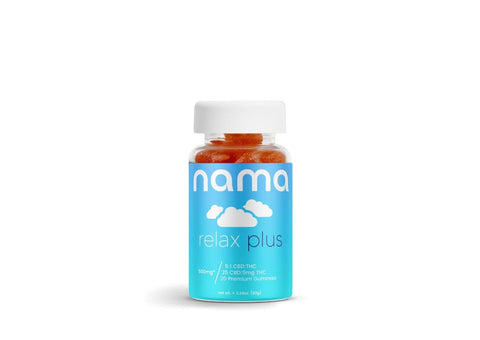
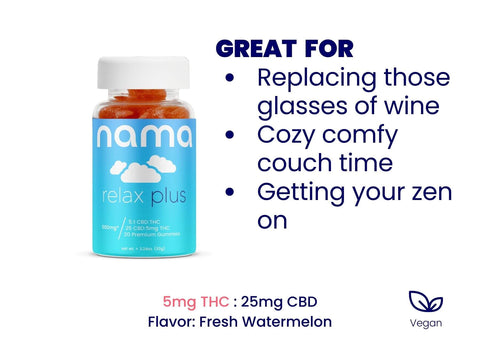
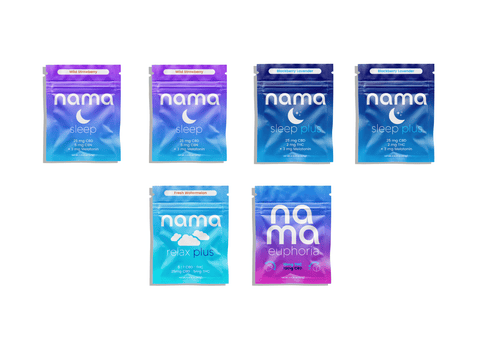
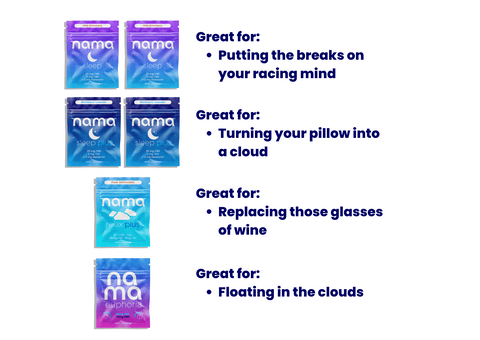
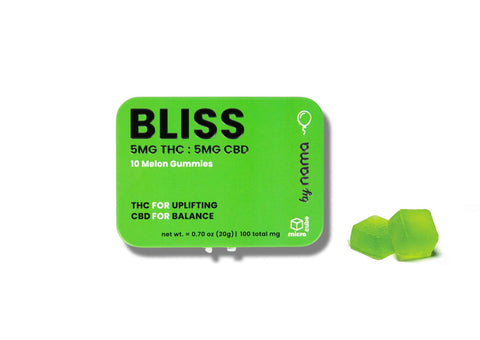
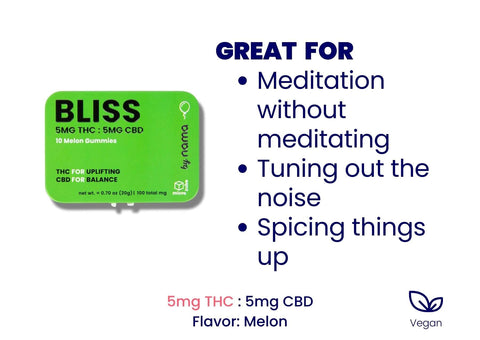
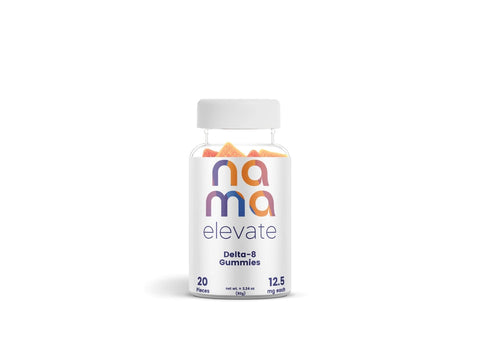
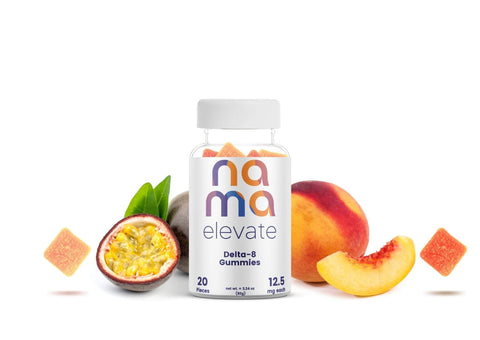
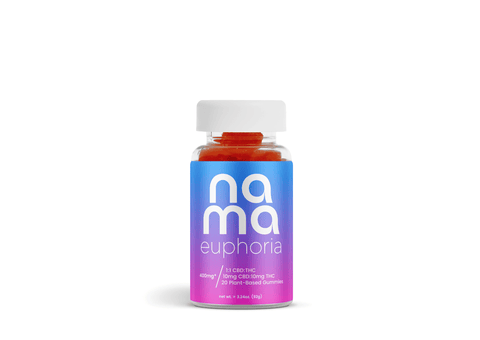
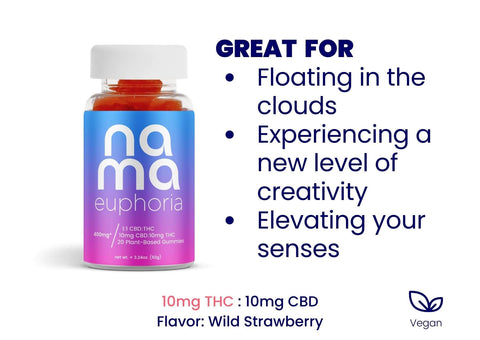
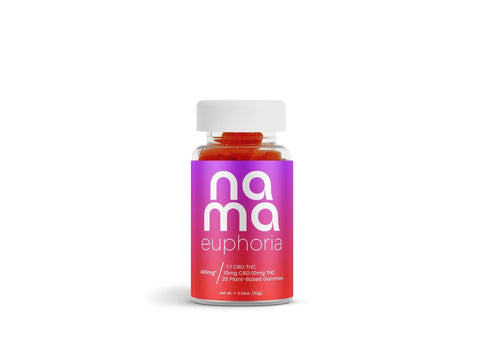
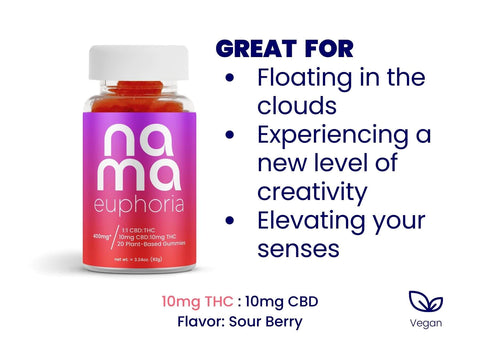









![Buzz Drops™ [THC Drink Drops]](http://www.namacbd.com/cdn/shop/files/nama_thc_buzz_drops.png?v=1711412866&width=480)
![Buzz Drops™ [THC Drink Drops]](http://www.namacbd.com/cdn/shop/files/buzz-drop-wine-comparison.png?v=1736882023&width=480)


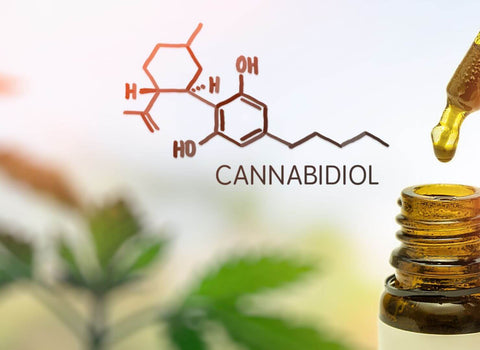
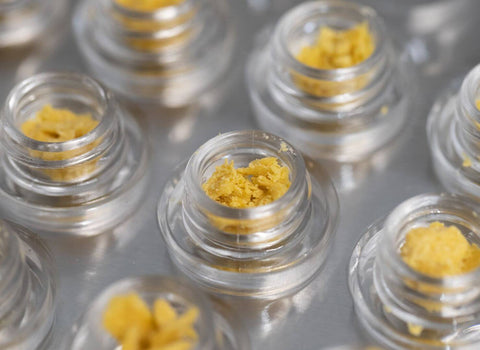


Comments (0)
There are no comments for this article. Be the first one to leave a message!